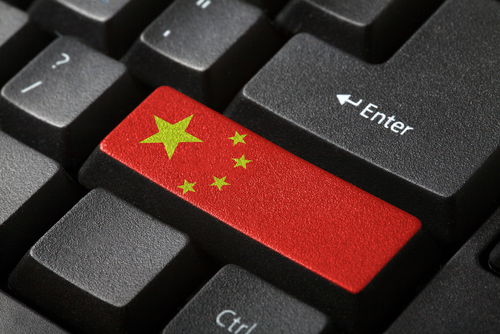China has adopted a cyber security law that strengthens more government controls over the Internet in the nation in a bid to fight threats from hackers and terrorists.
However the legislation, set to come into effect in June 2017, has been met with criticism that it threatens to shut out foreign technology and network companies and further deepens China’s already vice-like grip on online censorship and surveillance.
“China is an internet power, and as one of the countries that faces the greatest internet security risks, urgently needs to establish and perfect network security legal systems,” Yang Heqing, an official on the National People’s Congress standing committee, was reported to have said in a bi-monthly legislative meeting.
China’s cyber controversy
 The controversy stems from the final draft of the legislation containing the requirement for “critical infrastructure operators” to store business and personal data with in China and to pass national security reviews as well as provide technical support.
The controversy stems from the final draft of the legislation containing the requirement for “critical infrastructure operators” to store business and personal data with in China and to pass national security reviews as well as provide technical support.
With the latter parts being rather hazy and unspecified, the legislation raised concerns that the Chinese government could impose on companies to provide back doors and part with their intellectual properties if they wish to operate within China.
Companies are also required to report undefined “network security incidents”, retain network logs for at least six months and accept governmental supervision.
Furthermore, the law also imposes censorship a matter of cyber security, as well as the ability to punish companies if they allow unapproved information to circulate online.
Unsurprisingly, the legislation has prompted a negative reaction from groups such as the Human Rights Watch, which are concerned the law will further encroach upon the Internet freedoms of the Chinese people and companies trying to operate in the nation.
“Despite widespread international concern from corporations and rights advocates for more than a year, Chinese authorities pressed ahead with this restrictive law without making meaningful changes,” said Sophie Richardson, China director at Human Rights Watch. “The already heavily censored Internet in China needs more freedom, not less.”
The concerns are warranted given China has clashed with major technology firms over privacy issues numerous times in the past, notably Apple’s iBooks and iTunes services were shutdown in China following an Internet crackdown by the nation’s governments on foreign tech companies.
But given the continuous spread of the Internet and the economic benefits and opportunism multinational digital services can bring, as well as the ability for savvy people to bypass the Great Chinese Firewall through the uses of virtual private networks and other traffic routing techniques, it waits to be seen if China can maintain its draconian controls over the nation’s Internet use.
Quiz: What do you know about cybersecurity in 2016?




